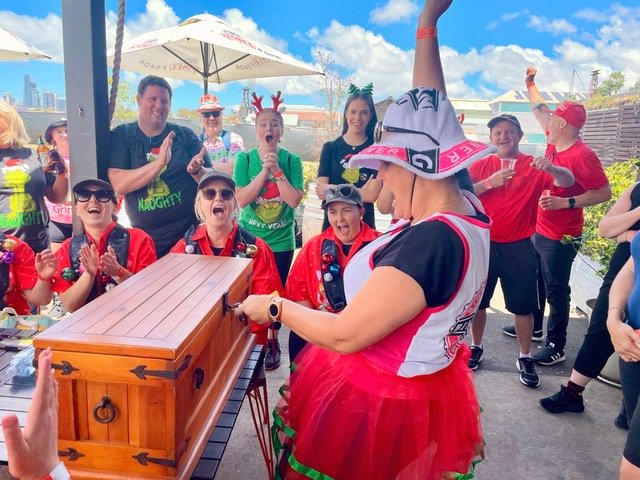Among the many subgenres of drama, Historical Drama holds a unique place. It brings together fact and fiction, using real-life events, eras, and figures as a backdrop while weaving powerful emotional stories around them. These dramas don’t just entertain—they educate, inspire, and allow audiences to relive the past through the eyes of human experiences.

What is Historical Drama?
Historical Drama is a storytelling genre set in a specific period of history, often inspired by real people, events, or social conditions of that time. While accuracy is important, the stories also include fictional elements, giving creators the freedom to add suspense, romance, or intrigue.
For example, a series set during the French Revolution, World War II, or the Mughal Empire may use true events as the foundation but focus on how ordinary people lived, loved, and struggled during those times.
Key Characteristics of Historical Drama
- Period Setting – Authentic costumes, locations, and dialogues reflect the historical era.
- Real-Life Inspirations – Based on true figures, rulers, or iconic events.
- Mix of Fiction & History – Blending factual details with creative storytelling.
- Political & Social Issues – Exploring power struggles, wars, revolutions, or social hierarchies.
- Universal Emotions – Love, betrayal, sacrifice, and ambition shown in a historical backdrop.
- Epic Visuals – Large-scale battles, palaces, ancient cities, and royal courts.
Why Audiences Love Historical Drama
- Educational Value – Viewers learn about history in a dramatic and engaging way.
- Escapism – Audiences are transported into different times and places.
- Cultural Appreciation – Showcasing traditions, clothing, and lifestyles of the past.
- Timeless Themes – Struggles for freedom, justice, and love resonate across centuries.
- Blend of Reality & Drama – The balance of authenticity and creativity keeps the stories compelling.
Subgenres of Historical Drama
- Biographical Historical Drama (Biopics) – Stories of real-life personalities (The Crown, Lincoln).
- War & Revolution Drama – Based on historic battles and uprisings (Dunkirk, 1917, Lagaan).
- Royal Court Drama – Kings, queens, and palace intrigue (The Tudors, Mughal-e-Azam).
- Social-Historical Drama – Focused on society, class, and cultural struggles (Downton Abbey).
- Historical Romance – Love stories set in historical times (Pride & Prejudice, Titanic).
- Epic Historical Dramas – Large-scale films covering entire civilizations (Gladiator, Troy).
Famous Examples of Historical Drama
Movies
- Gladiator (2000) – Ancient Rome’s politics and revenge.
- Braveheart (1995) – William Wallace’s fight for Scottish freedom.
- Lincoln (2012) – A detailed look at Abraham Lincoln’s presidency.
- Mughal-e-Azam (1960) – An epic tale of love and royalty in Mughal India.
- Titanic (1997) – A tragic love story set against a real historical disaster.
TV Shows
- The Crown – Chronicles the life of Queen Elizabeth II.
- Downton Abbey – Early 20th-century British society and class struggles.
- Vikings – Legendary warriors and Norse culture.
- The Last Kingdom – Historical fiction during the Viking invasions of England.
Literature
- War and Peace by Leo Tolstoy – A Russian epic mixing history and drama.
- Gone with the Wind by Margaret Mitchell – A romance during the American Civil War.
- Les Misérables by Victor Hugo – Love and revolution in 19th-century France.

Themes in Historical Drama
- Power & Politics – Struggles for control, revolutions, and empires.
- Love & Betrayal – Romantic stories tested by social and political turmoil.
- Courage & Sacrifice – Heroes risking everything for freedom or justice.
- Class & Society – Exploration of inequality, privilege, and oppression.
- War & Peace – The human cost of violence and the desire for harmony.
Impact of Historical Drama
Historical dramas have a lasting cultural influence because they combine learning with entertainment. They:
- Keep history alive for modern audiences.
- Inspire curiosity about different eras and civilizations.
- Encourage debates about accuracy vs. artistic freedom.
- Create cultural pride by showcasing heritage and traditions.

Conclusion
The Historical Drama genre is more than just a retelling of the past—it’s a way to experience history emotionally. By combining grand visuals, real events, and timeless themes of love, sacrifice, and courage, these stories connect us with our roots and remind us that history is not just about dates and battles, but about people and their lives.
Whether it’s Gladiator, The Crown, or Mughal-e-Azam, historical dramas continue to captivate audiences across generations by turning the past into living, breathing stories full of emotion and meaning.